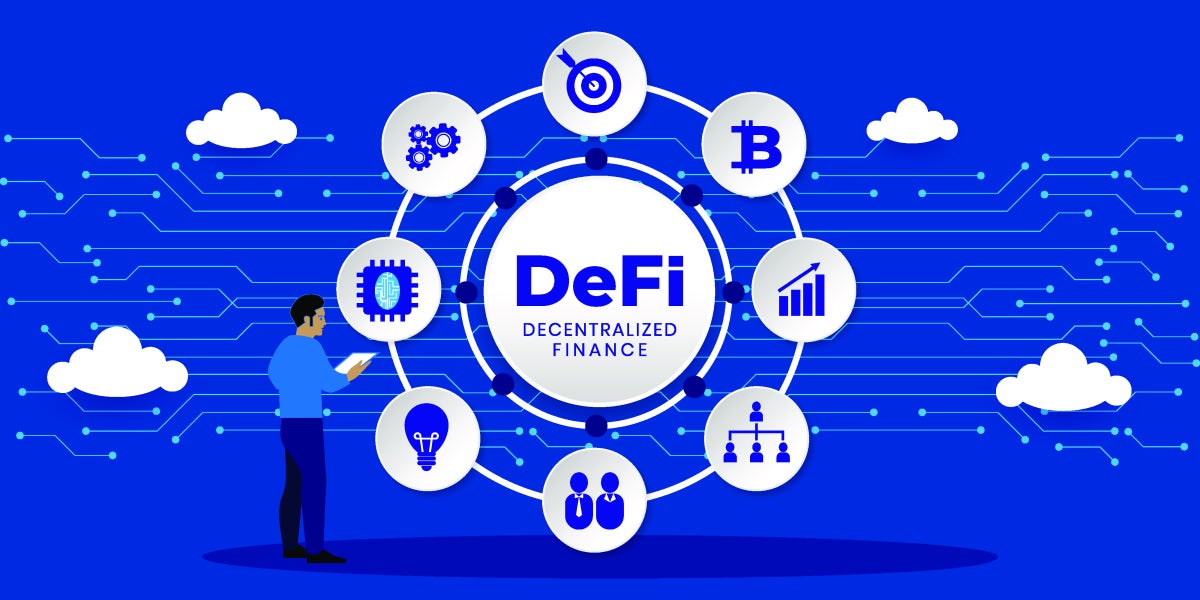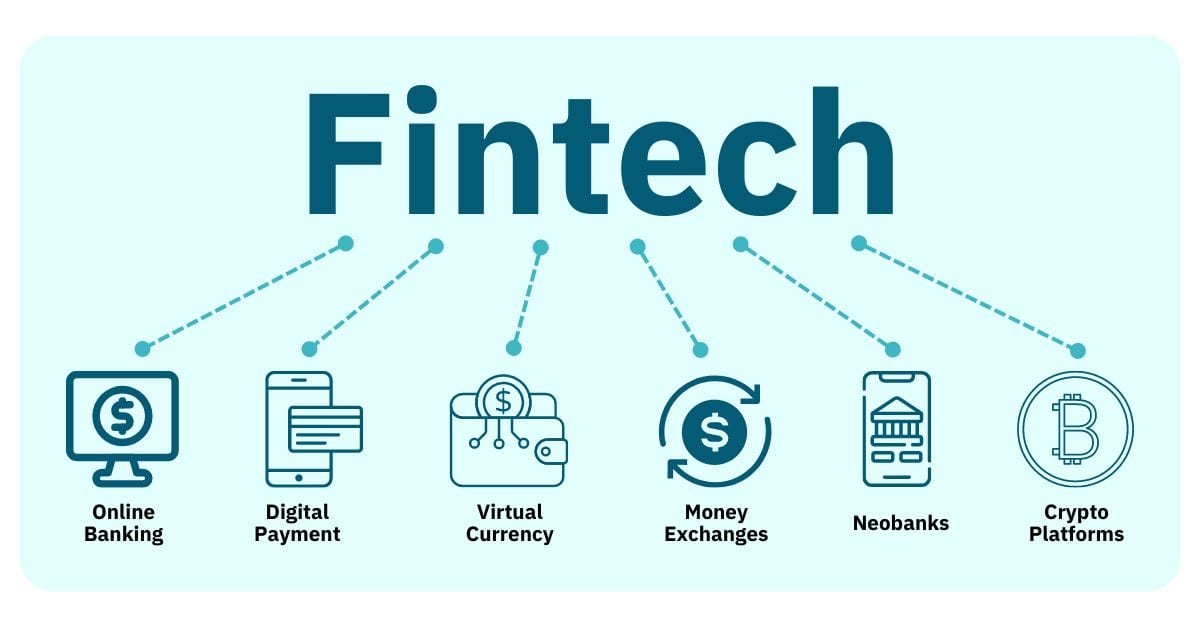
Top Crypto SEO Strategies to Boost Your Blockchain Project
In the rapidly evolving world of blockchain technology and digital assets, visibility is everything. Whether you’re launching a new cryptocurrency, running a decentralized finance (DeFi) platform, or building the next big NFT marketplace, your success heavily relies on your online presence. That’s where crypto SEO services come into play.
Search Engine Optimization (SEO) for blockchain and crypto projects is a unique discipline. It requires a deep understanding of both digital marketing best practices and the nuances of blockchain technology. In this guide, we’ll explore the top crypto SEO strategies that can help elevate your project in search engine rankings, attract targeted traffic, and build long-term credibility in the crypto space.
Understand Your Audience and Niche
Before implementing any SEO tactic, start by defining your target audience. Are you targeting crypto traders, developers, institutional investors, or casual users curious about blockchain technology? Each group searches differently.
- Use keyword research tools like Ahrefs, SEMrush, or Google Keyword Planner.
- Focus on long-tail keywords such as “best DeFi platforms 2025” or “how to stake crypto safely.”
- Analyze your competitors to find content gaps and keyword opportunities.
The better you understand your audience, the more effectively you can craft content that addresses their specific needs and queries.

2. Develop High-Quality, Informative Content
In the crypto world, trust is paramount. Creating educational, insightful, and technically accurate content is the foundation of good SEO and brand credibility.
Examples of effective content types include:
- Beginner guides (e.g., “What is a Blockchain Oracle?”)
- Project comparisons (e.g., “Ethereum vs Solana: Which One Wins in 2025?”)
- Case studies and use cases
- Technical whitepapers and explainer articles
Search engines reward sites that consistently deliver value. Plus, informative content tends to attract backlinks, which are crucial for SEO authority.
3. Leverage Crypto-Specific Keywords
General SEO tactics aren’t enough. You need to integrate crypto-specific keywords into your strategy. This includes targeting terms like:
- “decentralized exchange”
- “crypto wallet security”
- “blockchain scalability solutions”
- “crypto SEO services”
Place these keywords in strategic locations like title tags, headers, meta descriptions, and throughout the body of your content. However, avoid keyword stuffing — focus on natural integration.
4. Optimize Technical SEO
Technical SEO lays the foundation for your site’s performance in search engines. Ensure that:
- Your website loads quickly and is mobile-friendly.
- You have an XML sitemap and clean URL structure.
- HTTPS is enabled for site security.
- There are no broken links or 404 errors.
- Structured data markup is used to enhance search results.
Google and other search engines prioritize technically sound websites, which means faster indexing and better ranking potential.
5. Earn High-Quality Backlinks
Backlinks remain a key factor in SEO rankings. For crypto projects, this means building authority by getting mentioned on reputable crypto media and technical blogs.
Strategies to earn backlinks:
- Guest post on well-known crypto websites.
- Conduct interviews with blockchain thought leaders.
- Publish original research or industry reports.
- Create shareable infographics and data visualizations.
By building a strong backlink profile, your domain authority increases, which boosts your site’s visibility in competitive crypto-related searches.
6. Promote via Community and Social Channels
Crypto thrives on community. Platforms like Twitter, Discord, Reddit, and Telegram are invaluable for engaging your target audience and amplifying content reach.
Promoting your blog posts, announcements, and educational content on these platforms can:
- Drive real-time traffic to your site.
- Generate discussion and backlinks.
- Enhance brand recognition.
Remember to include SEO-friendly links when sharing, such as URLs with relevant keywords and tracking parameters.

7. Use Analytics to Continuously Improve
SEO is not a set-it-and-forget-it strategy. You must continuously monitor and refine your approach based on data.
Track key metrics like:
- Organic traffic
- Bounce rate
- Keyword rankings
- Backlink growth
- Conversion rates
Use tools like Google Analytics, Google Search Console, and Ahrefs to analyze performance and optimize future campaigns accordingly.
8. Partner with a Specialized SEO Agency
If SEO isn’t your core strength, or your team is focused on development and growth, consider partnering with professionals. Agencies that specialize in crypto SEO services understand both the digital marketing landscape and the unique needs of blockchain projects.
They can help you:
- Develop a comprehensive keyword and content strategy
- Build high-quality backlinks
- Manage technical SEO
- Ensure compliance with evolving search engine algorithms
For example, Fortunatos offers specialized crypto SEO services ( https://fortunatos.io/crypto-seo-services/ ) tailored to help blockchain companies gain visibility, build trust, and grow sustainably in competitive digital markets.
Final Thoughts
In the volatile and competitive crypto space, having a strong SEO strategy isn’t optional — it’s essential. Whether you’re bootstrapping a new token launch or scaling an existing blockchain product, smart SEO can drive awareness, build authority, and convert traffic into loyal users and investors.
By implementing the strategies outlined above — from keyword research and content marketing to technical SEO and backlink building — your crypto project can gain the visibility it deserves in a crowded digital landscape.
And if you’re looking to supercharge your results, don’t hesitate to explore expert-led crypto SEO services to guide your journey.
Let me know if you want this formatted for a blog or need visuals, meta tags, or content for social media promotion.

SEO Services in The Woodlands: Why Your Business Needs Them Now
If you run a business in The Woodlands, TX, and you’re looking to increase your visibility, attract more local customers, and grow your revenue, Search Engine Optimization (SEO) is one of the smartest investments you can make. In an increasingly digital world, potential customers turn to search engines — especially Google — to find local businesses that meet their needs. Whether they’re looking for a cozy coffee shop, a reliable plumber, or a boutique fitness studio, they’re likely to type a quick search query into their phone or computer. If your business isn’t showing up in those search results, you’re missing out on valuable opportunities.
The Woodlands seo company is a dynamic and rapidly growing community just north of Houston. With an expanding population, high household incomes, and a competitive local business environment, visibility in local search is more critical than ever. Now is the perfect time to take advantage of that growth by investing in SEO and ensuring that your business is front and center when people in your area go searching.

What is SEO and Why Does Your Business in The Woodlands Need It?
Search Engine Optimization (SEO) is the practice of improving your website’s content, structure, and online presence so that it ranks higher in search engine results pages (SERPs). The higher your website ranks, the more likely potential customers are to find and click on it. But SEO isn’t just about general web traffic — it’s about attracting the right traffic. When done correctly, SEO brings highly targeted visitors who are actively looking for your products or services.
For businesses in The Woodlands, local SEO is particularly important. Local SEO is a subset of SEO that focuses on optimizing your online presence to attract more business from relevant local searches. These are searches that include terms like “near me” or specific location-based keywords such as “coffee shop The Woodlands” or “best dentist in The Woodlands.” These searchers are usually close to making a purchase decision, which makes them high-value leads.
Without a strong local SEO strategy, your business is likely to be buried beneath larger competitors or lost among dozens of local alternatives. SEO ensures that your business appears not just in general searches but also in critical places like Google Maps, local directories, and mobile search results.
SEO also plays a crucial role for businesses operating in specialized and highly competitive industries like Fintech, Crypto and Forex Seo. These sectors rely heavily on digital visibility to build credibility and attract informed, high-intent users. Whether you’re promoting a trading platform, a financial app, or blockchain-based services, a tailored SEO strategy can help cut through the noise and reach your target audience. With the right keywords, content, and technical optimization, companies in these industries can increase their online presence, generate qualified leads, and stay compliant with evolving industry standards.
Benefits of Local SEO for Businesses in The Woodlands
Investing in local SEO can deliver a powerful return on investment. Here are some of the most important ways your business can benefit:
Higher Rankings in Google Maps and Local Pack Results
When users search for services nearby, Google often displays a “local pack” — a map with three featured business listings. Showing up in that top three significantly increases your chances of getting clicks, calls, and foot traffic. Optimizing your Google Business Profile, building local citations, and encouraging positive reviews are all key parts of this process.
Increased Organic Website Traffic
Organic traffic is the traffic your website receives from search engines without paid advertising. It’s sustainable, cost-effective, and often delivers better engagement than paid ads. SEO helps you consistently attract people who are already searching for businesses like yours, making your marketing more efficient and targeted.
More Qualified Local Leads
People conducting local searches are usually ready to act — they want to find a product, make a purchase, schedule a service, or visit a store. Because SEO attracts people at this point of high intent, your website visitors are much more likely to convert into actual customers.
Enhanced Trust and Brand Credibility
Businesses that appear near the top of search results are often perceived as more trustworthy and credible. In local markets like The Woodlands, this credibility can make a significant difference. A strong SEO presence signals that your business is legitimate, active, and relevant to the community.
Better User Experience on Your Website
Part of SEO involves improving your site’s technical performance and usability. This includes faster loading times, mobile-friendly design, clear navigation, and high-quality content — all of which lead to better experiences for your visitors and higher conversion rates.

What’s Included in Our SEO Services Package
We provide a comprehensive, full-service SEO solution tailored specifically to businesses operating in and around The Woodlands. Our strategy is built around proven techniques that align with the latest search engine algorithms and best practices.
Website Technical Audit
The first step in our process is a thorough technical analysis of your website. We evaluate key performance indicators such as page speed, mobile usability, security (HTTPS), crawlability, and indexability. Any issues that may prevent your site from being properly read or ranked by search engines are identified and resolved. This audit serves as the foundation for a stronger, more optimized website.
Keyword Research and Competitor Analysis
We conduct deep research into what your target audience is searching for — both in terms of services and location. We also analyze your top competitors in The Woodlands to understand what’s working for them and where opportunities exist for you to outperform them. The insights we gather from this research shape every aspect of your SEO campaign.
On-Page Optimization
Your website’s content and structure play a crucial role in how well you rank. We optimize all on-page elements, including:
- Title tags and meta descriptions for each page
- Header tags (H1, H2, H3) to structure your content
- Image alt tags and internal linking
- Schema markup to enhance search appearance
- Keyword placement and content readability
Our goal is to ensure your site is both user-friendly and fully optimized for search engines.
Local Listings Management
We create, verify, and optimize your business profiles across key directories like Google Business Profile (formerly Google My Business), Yelp, Bing Places, Apple Maps, and others. We also ensure your business information (NAP — Name, Address, Phone Number) is accurate and consistent across all platforms. Local listings are a crucial part of local SEO and help customers find and trust your business.
Content Creation
Content is the heart of any successful SEO campaign. We develop high-quality, original content that resonates with your local audience and targets valuable keywords. This includes:
- Local landing pages tailored to specific neighborhoods or services
- Blog posts addressing local topics, questions, or events
- Informative articles that establish your business as a trusted expert
- Service pages that are optimized to convert visitors into leads
Good content improves your rankings, increases time spent on your site, and enhances customer engagement.

Analytics and Performance Tracking
We believe in transparency and data-driven decision-making. That’s why we set up detailed performance tracking using tools like Google Analytics, Google Search Console, and custom dashboards. You’ll receive regular reports showing:
- Keyword rankings and improvements
- Website traffic and sources
- Conversion rates and goal completions
- Local listing interactions and customer reviews
This allows you to clearly see the ROI of your SEO investment and understand where we’re driving the most value.
Why Choose Us for SEO in The Woodlands
We’re not just SEO experts — we’re specialists in helping local businesses thrive. Our deep understanding of The Woodlands market, combined with a passion for supporting entrepreneurs, makes us the ideal partner for your growth.
Extensive Experience with Local Businesses
We’ve worked with businesses of all sizes in The Woodlands, from startups to established brands. We understand the local demographics, seasonal trends, and unique challenges that come with marketing in this area.
Real Results, Real Case Studies
We don’t rely on buzzwords or vague promises. Our clients have seen measurable improvements — whether it’s a 200% increase in organic traffic, higher conversion rates, or more calls coming from Google. When possible, we’re happy to share anonymized case studies that demonstrate our impact.

Transparent Communication and Regular Reporting
With us, there are no black-box strategies or long periods of silence. We offer clear communication, monthly updates, and data-driven reporting. You’ll always know exactly what we’re doing, why we’re doing it, and how it’s benefiting your business.
Dedicated Support and Partnership
Your success is our success. We treat each client relationship as a long-term partnership, offering support, guidance, and strategic advice at every step. Our goal isn’t just to help you rank — it’s to help you grow.
What Our Clients Say
“We’ve worked with several SEO agencies in the past, but this team actually delivered results. Within just a few months, we were ranking on the first page for several of our key services. Highly recommend to anyone running a local business in The Woodlands.” – Local Business Owner
Are you ready to take your local presence to the next level?
Let’s work together to get your business ranking higher in search engines, attracting more qualified leads, and growing your bottom line. Contact us today to request a FREE SEO audit or schedule a one-on-one consultation. We’ll show you exactly where you stand — and how we can help you rise to the top.

Top Strategies Forex SEO Companies Use to Drive Traffic to Your Website
In today’s digital age, the competition in the forex market is more fierce than ever. As a forex broker, the challenge is not just about providing superior trading services but also about ensuring your website stands out in the crowded market. A powerful way to achieve this is through effective search engine optimization (SEO), and one of the best ways to achieve this is by working with a forex SEO company.
The role of a forex SEO company is to enhance your website’s visibility, drive targeted traffic, and ultimately increase conversions. But how do they accomplish this? What are the strategies they use to ensure that your website ranks higher on search engine results pages (SERPs)? In this comprehensive guide, we will take a deep dive into the top strategies employed by forex SEO companies to drive traffic to your website and boost your online presence.
Understanding Forex SEO: What It Is and Why It Matters
Before delving into the strategies, it’s crucial to understand what forex SEO is. Search Engine Optimization (SEO) is the process of improving a website’s visibility in search engine results pages (SERPs) through organic (non-paid) methods. For forex brokers, SEO is essential because it helps drive high-quality traffic to their websites, increases brand visibility, and builds trust among potential traders.
The Role of Forex SEO Companies
A forex SEO company specializes in optimizing forex-related websites for search engines, ensuring that the site ranks well for relevant keywords that traders are searching for. Unlike generic SEO companies, a forex SEO company has in-depth knowledge of the unique needs and challenges of the forex industry. They know how to target specific forex-related keywords, create content that resonates with traders, and ensure that the website complies with both SEO best practices and the specific requirements of the financial industry.
Now that we have a solid understanding of what a forex SEO company does, let’s explore the top strategies they use to boost traffic to your website.

In-Depth Keyword Research: The Foundation of Forex SEO Success
Keyword research is the backbone of any successful SEO campaign. For a forex SEO company, this process is critical because the forex industry has a highly competitive and specialized set of keywords. Forex brokers need to rank for terms that traders are actively searching for, such as “best forex brokers,” “forex trading strategies,” “forex signals,” or “how to trade forex.”
How Forex SEO Companies Conduct Keyword Research
A forex SEO company employs advanced tools to identify high-volume, low-competition keywords. They look for keyword opportunities that are directly relevant to your business and that have the potential to drive qualified traffic. Some strategies include:
- Long-tail Keywords: These are highly specific search terms, such as “best forex brokers for beginners” or “forex trading with low leverage.” These keywords often have lower competition and higher conversion potential.
- Competitor Analysis: By analyzing competitors’ keywords, a forex SEO company can uncover gaps in their SEO strategy and identify keywords that your website can rank for.
- Search Intent: Understanding the intent behind a search query is essential. Forex traders may be looking for educational content, platform reviews, or trading tips. A forex SEO company tailors the keyword strategy to match the user intent behind each search.
Once the relevant keywords are identified, the next step is to optimize the content and website structure around these terms.
On-Page Optimization: Structuring Your Website for SEO Success
On-page SEO refers to the optimization techniques applied directly to the website to improve its search engine rankings. For a forex SEO company, on-page optimization is one of the most critical strategies to drive traffic and improve your website’s performance.
Key On-Page SEO Techniques Used by Forex SEO Companies
A forex SEO company will implement various on-page optimization strategies, including:
- Optimized Content: High-quality, keyword-rich content is essential for ranking. A forex SEO company will ensure that your website includes detailed, informative content related to forex trading, including blog posts, articles, guides, and more.
- Meta Tags Optimization: Optimizing meta titles, descriptions, and headers with relevant keywords helps search engines understand the content of the page and improves click-through rates (CTR).
- Internal Linking: Internal linking helps distribute page authority across your site and makes it easier for search engines to crawl your website. A forex SEO company will create a strategic internal linking structure to ensure important pages are linked effectively.
- User Experience (UX): User experience plays a significant role in SEO. A forex SEO company ensures your website is mobile-friendly, loads quickly, and provides an intuitive navigation structure, all of which are important ranking factors for search engines.
- Optimizing for Featured Snippets: Featured snippets are the boxed information that appears at the top of some search results. A forex SEO company can help optimize your content to be featured in these snippets by structuring it in a way that is more likely to be picked up by search engines.
3. High-Quality Content Creation: Engaging and Educating Traders
Content is king, especially in the forex industry. Traders are constantly seeking valuable information about forex trading, from beginner tips to advanced strategies. A forex SEO company understands the importance of creating high-quality, engaging content that not only attracts traffic but also educates and converts visitors into customers.
Types of Content Forex SEO Companies Create
Here are some types of content a forex SEO company might create to drive traffic to your website:
- Blog Posts and Articles: Informative and well-researched blog posts can address common questions, provide forex trading strategies, and give updates on market trends.
- How-To Guides: Detailed guides on topics such as “How to start trading forex” or “How to use forex indicators” provide immense value to readers.
- Forex Reviews: Reviews of different forex brokers or trading platforms can attract users who are researching the best platforms to trade on.
- Videos: Video content, such as tutorials and webinars, can enhance engagement and increase time spent on your website, both of which are positive SEO signals.
- Case Studies: Real-world case studies showing successful forex traders can build credibility and trust among your audience.

Link Building: Building Authority in the Forex Industry
Link building is another crucial aspect of SEO. Search engines view backlinks from reputable sources as a vote of confidence in your website. A forex SEO company will use various techniques to acquire high-quality backlinks that improve your website’s domain authority and ranking.
Effective Link Building Strategies for Forex Websites
- Guest Blogging: Writing guest posts on reputable financial and trading websites is an excellent way to gain backlinks and increase exposure.
- Industry Partnerships: Partnering with other financial and forex-related businesses can provide opportunities for cross-promotion and backlinking.
- Content Marketing: Creating shareable content, such as infographics or comprehensive research reports, encourages other websites to link back to your content.
- Directory Listings: Submitting your website to trusted business directories, especially those relevant to forex and financial markets, can improve your website’s visibility.
Local SEO: Targeting Region-Specific Forex Traders
For some forex brokers, attracting a global audience is the goal. However, many brokers focus on attracting traders from specific geographic locations. Local SEO is essential for forex brokers targeting region-specific traders. A forex SEO company will optimize your website for local searches by:
- Creating Location-Based Content: Developing content that is tailored to specific locations can help you rank for location-based keywords.
- Google My Business Optimization: A forex SEO company will help set up and optimize your Google My Business profile to ensure your forex services appear in local searches.
- Local Link Building: Acquiring backlinks from local sources, such as regional financial blogs or news outlets, can boost your local SEO efforts.
Mobile Optimization: Capturing Traffic from Mobile Traders
With the rise of mobile trading apps and platforms, it’s essential to have a mobile-optimized website. A forex SEO company understands that mobile optimization is a crucial ranking factor, and they ensure that your website is responsive and loads quickly on all mobile devices.
Why Mobile Optimization Matters for Forex Brokers
- Increased Mobile Traffic: More and more traders are accessing forex websites via mobile devices. A mobile-friendly site enhances user experience and encourages repeat visits.
- Search Engine Ranking: Google uses mobile-first indexing, meaning it prioritizes the mobile version of your site for ranking purposes.
- Faster Load Times: A mobile-optimized site with fast loading times can decrease bounce rates and improve user engagement, both of which positively affect SEO rankings.
Conclusion: Why You Need a Forex SEO Company to Thrive Online
In the highly competitive forex market, simply having a functional website isn’t enough. To attract and retain traders, you need to stand out in search engine results and provide valuable content and services. A forex SEO company is your partner in ensuring your website ranks higher, attracts qualified traffic, and converts visitors into loyal customers.
By implementing effective keyword research, on-page optimization, content creation, link building, and mobile optimization strategies, a forex SEO company can help you drive sustainable growth in your online presence. The strategies outlined in this article represent just a few of the ways a forex SEO company can elevate your business, so you can focus on providing top-notch trading services while they handle the intricacies of SEO.
If you’re serious about growing your forex trading business, working with a reputable forex SEO company is a step in the right direction.

The Power of Keyword Research in DeFi: How to Rank in a Crowded Market
Why DeFi Needs Strategic Keyword Research
The decentralized finance (DeFi) space has exploded in popularity over recent years, with new platforms, tokens, and projects emerging regularly. As competition intensifies, DeFi platforms need to find ways to stand out in an increasingly crowded market. This is where digital marketing and SEO (Search Engine Optimization) play an essential role in achieving visibility. Without a well-thought-out keyword strategy, even the most innovative DeFi projects risk being lost in the noise.
Keyword research is at the heart of a successful DeFi marketing strategy. By identifying and targeting the right search terms, platforms can increase their organic traffic, connect with potential users, and improve their overall ranking in search engine results. This article will explore how keyword research can help DeFi projects rise above the competition and achieve long-term success.
The Role of Keyword Research in DeFi Marketing Services
Keyword research is an essential tool for DeFi platforms looking to optimize their online presence. It allows businesses to understand what potential users are searching for and to tailor their content accordingly. This ensures that DeFi offerings align with high-intent search queries, meaning those who discover a platform are more likely to convert into active users or customers.
Effective keyword research helps DeFi platforms pinpoint the right target audience, boost visibility, and enhance user engagement. Platforms can also uncover niche terms specific to their DeFi Marketing services that set them apart from larger, more generic DeFi platforms.

Identifying the Best Keywords for DeFi Platforms
Selecting the right keywords in a saturated market can be challenging, but it’s crucial for success. Here’s a look at how DeFi projects can identify high-performing keywords:
- Research Tools: Using keyword tools like SEMrush, Ahrefs, and Google Keyword Planner can help identify search volume, keyword difficulty, and competition level.
- Long-tail vs. Short-tail: Long-tail keywords (e.g., “best decentralized lending platforms”) tend to have lower competition and more targeted traffic. Short-tail keywords (e.g., “DeFi”) may offer higher search volume but are harder to rank for.
- User Intent: Prioritize keywords that align with the intent of the target audience. Keywords that signal buying or engagement intent (e.g., “how to yield farm” or “best staking platform”) are more likely to result in conversions.
By targeting a mix of long-tail and short-tail keywords that meet user intent, DeFi platforms can improve their chances of ranking higher in search results.
Keyword Research for DeFi Marketing Services: Tools and Techniques
Effective keyword research requires more than just using basic tools. Here’s how DeFi platforms can utilize advanced techniques:
- Competitor Analysis: Tools like Ahrefs and SEMrush allow users to analyze the keywords their competitors are targeting. This helps identify gaps in the market and potential opportunities for differentiation.
- Content Gap Analysis: Identifying what search terms competitors aren’t ranking for can highlight areas where DeFi platforms can establish their authority.
- Localization: If your DeFi project targets specific geographic regions, focus on location-based keywords to drive local traffic.
By regularly reviewing and updating their keyword strategies, DeFi platforms can stay ahead of trends and continue to improve their SEO efforts.
Optimizing DeFi Content for Search Engines
Once the right keywords are identified, incorporating them into your content is essential. Here are key strategies for optimizing DeFi content:
- Content Structure: Incorporate keywords naturally into headings, subheadings, meta tags, and image alt texts. These elements help search engines understand the content and improve rankings.
- On-Page SEO: Optimize page titles, URLs, and internal linking strategies. Ensure that each page of your website answers users’ queries while including the target keywords.
- Content Quality: High-quality, informative content that addresses users’ questions is critical. Google rewards platforms that provide real value, so ensure content goes beyond simple keyword stuffing.
By optimizing DeFi content with well-researched keywords, platforms can improve their relevance and rankings in search results.

The Impact of Local and Global Keywords in DeFi Marketing Services
DeFi is a global ecosystem, but some platforms may benefit from focusing on local or regional keywords, especially if they are targeting specific communities or markets.
- Local Keywords: Location-specific keywords (e.g., “DeFi projects in Europe”) can help attract users in specific countries or regions where the platform operates.
- Global Keywords: DeFi platforms targeting an international audience must ensure their keyword strategy includes global search terms that appeal to users from various countries. Multi-language optimization may also be a consideration for platforms aiming to reach a broader audience.
Having a clear understanding of whether a local or global strategy works best for your platform will significantly impact the effectiveness of your SEO efforts.
Leveraging SEO for DeFi Marketing Services: Advanced Techniques
To further enhance keyword strategies, DeFi platforms can apply more advanced SEO techniques:
- Voice Search Optimization: With the rise of voice-activated devices, optimizing for voice search (e.g., conversational keywords like “how to invest in DeFi projects”).
- Mobile Search Optimization: DeFi platforms must ensure their sites are mobile-friendly, as more users access decentralized finance tools through smartphones.
- Backlinking: Building high-quality backlinks from reputable sites can improve the platform’s authority and search ranking.
- Intent-Based Optimization: Moving beyond traditional keywords, focusing on user intent—whether informational, navigational, or transactional—can make a significant difference.
Advanced SEO strategies can help a DeFi platform stay competitive and achieve greater long-term success.
Analyzing the Competitive Landscape in DeFi Marketing Services
To stand out, DeFi platforms need to understand their competitive landscape. Here’s how keyword analysis plays a crucial role:
- Competitive Benchmarking: Use keyword research to assess what your competitors are doing well and identify areas where they are lacking.
- Case Studies: Look at successful DeFi platforms and study their keyword strategies. Learn from their success to fine-tune your own approach.
- Continuous Optimization: The DeFi space is constantly evolving, so it’s crucial to monitor keyword trends regularly and adjust strategies as needed.
By staying informed about competitors and adjusting keyword strategies, DeFi platforms can maintain their competitive edge.
Tracking and Measuring the Success of DeFi Keyword Strategies
To know if your keyword strategy is working, it’s important to track key performance metrics:
- Search Rankings: Monitor how your website ranks for targeted keywords over time.
- Organic Traffic: Measure the volume of organic traffic driven by your keywords.
- Conversion Rates: Evaluate how many visitors convert into users or customers after discovering your platform through a search engine.
Using tools like Google Analytics, SEMrush, and Ahrefs can help track and measure performance, making it easier to tweak and improve strategies as needed.
Common Mistakes to Avoid in DeFi Keyword Research and SEO
Even experienced marketers make mistakes in keyword research. Here are some common pitfalls to avoid:
- Over-Optimization: Keyword stuffing can lead to poor user experience and penalization by search engines.
- Neglecting User Intent: Focusing on broad, highly competitive keywords may not drive relevant traffic. Instead, prioritize keywords that align with user intent and are more likely to lead to conversions.
- Ignoring Regular Audits: SEO isn’t a one-time task. Regular audits and updates to keyword strategies are essential to maintain and improve rankings.
By avoiding these mistakes, DeFi platforms can ensure their SEO and keyword strategies remain effective.
Conclusion: Elevating Your DeFi Project with Smart Keyword Research
In the competitive DeFi landscape, strategic keyword research is critical to achieving success. By understanding what users are searching for, selecting the right keywords, and optimizing content effectively, DeFi platforms can stand out in a crowded market. With consistent monitoring and optimization, platforms can stay ahead of the competition and continue to grow their visibility and user base.
As the DeFi industry evolves, integrating SEO and keyword research into your marketing strategy is a must. By taking action now, you can ensure that your DeFi project not only ranks higher but also attracts the right audience for sustained growth.

Local SEO for FinTech: A Guide to Boosting Your Visibility and Building Trust Locally
In today’s competitive digital landscape, FinTech businesses face unique challenges when it comes to attracting local customers. Unlike other sectors, the financial services industry requires a combination of trust-building and accessibility to succeed. Local SEO (Search Engine Optimization) is essential for FinTech companies targeting customers in specific regions. Local SEO not only helps improve your online visibility, but also fosters trust, as customers are more likely to engage with businesses that are visible and highly rated in their local area. This guide explores the fundamentals of local SEO and how FinTech companies can harness its power to drive local success.

The Basics of Local SEO for FinTech Websites
What is Local SEO?
Local fintech SEO refers to the practice of optimizing your online presence to attract more business from relevant local searches. Unlike traditional SEO, which focuses on broader, non-local keywords, local SEO specifically targets users who are looking for products or services in a particular geographical area. For FinTech businesses, this means optimizing your website and content to rank well in local search results.
Why Local SEO Matters for FinTech
For FinTech companies, local SEO is vital because:
- Targeting Local Customers: Many FinTech services, such as loans, mortgages, or insurance, require local relevance. Customers are more likely to trust businesses they see as operating in their own area.
- Trust-Building: Financial decisions are sensitive, and local customers often look for services from nearby businesses. Being visible in local search results establishes your credibility.
- Better Conversion Rates: When people search for financial services locally, they are often closer to making a decision. Higher visibility means a higher chance of conversion.
Example of Successful Local SEO in FinTech
One successful example is a local mortgage company that focused on optimizing its website for specific neighborhoods and towns. They targeted location-specific keywords like “mortgages in [city]” and consistently updated their Google My Business profile. This approach helped them dominate local search rankings, driving more traffic and generating qualified leads.
Optimize Your Website for Local Search Intent
Incorporate Local Keywords in Your Content
Start by researching local keywords related to your FinTech services. Use tools like Google Keyword Planner or Ahrefs to identify terms your target audience is searching for, including location-based phrases such as “best financial advisor in [city]” or “mortgages in [neighborhood].” Integrate these keywords naturally into your content, blog posts, and landing pages.
Optimize Meta Tags for Local Search
Meta tags (titles and descriptions) play a critical role in local SEO. Ensure that each page on your website has a meta title and description that includes relevant location terms. Additionally, use schema markup to make your business’s location more visible in search results. This helps Google understand that your business is relevant to local searchers.
Mobile Optimization for Local Search
With more people using mobile devices to search for financial services, your website must be mobile-friendly. A responsive design that adapts to all screen sizes ensures that potential customers have a positive user experience, which can improve your local SEO rankings.
Create Localized Landing Pages
Why Local Landing Pages Matter
Localized landing pages are designed to cater to specific locations, helping your business show up in relevant local searches. These pages should highlight the services offered in a particular area and provide useful, location-specific content.
Content to Include on Local Landing Pages
Include elements like:
- Customer reviews and testimonials specific to that location
- Case studies relevant to the area’s financial needs
- Localized content (e.g., “Personal Loans for [City] Residents”)
Claim and Optimize Your Google My Business Listing
Setting Up Google My Business
Claiming and optimizing your Google My Business (GMB) profile is one of the most effective ways to improve your local SEO. Start by claiming your listing and ensuring that all business information (name, address, phone number) is accurate.
Using Google My Business Features Effectively
Add high-quality photos, list your services, and regularly post updates about your business. Customer reviews are essential, so encourage satisfied clients to leave positive feedback. Respond to reviews and engage with customers to build relationships and enhance your online reputation.
Local Link Building Strategies
Local Directories and Listings
Submitting your business to local directories like Yelp, BBB, and other trusted listings is a powerful local SEO strategy. Consistency across these platforms (in terms of NAP – Name, Address, Phone number) ensures that search engines trust your business.
Collaborate with Local Influencers and Bloggers
Partner with local influencers or bloggers who can help amplify your reach within the community. This could include guest blog posts or influencer shoutouts, which drive traffic and generate valuable backlinks to your website.
Engage with Local Sponsorships and Events
Sponsoring local events or activities not only boosts your community profile but also earns backlinks from local websites. These backlinks can significantly improve your local SEO efforts.

Leverage Customer Reviews and Testimonials
Why Reviews Matter for Local SEO
Customer reviews are a powerful ranking signal for local SEO. Google values businesses with positive reviews, especially those with a high volume of recent reviews.
Best Practices for Encouraging Reviews
Encourage customers to leave reviews by asking them directly after a successful interaction. Make it easy for them by providing links to your Google My Business page.
Showcasing Reviews on Your Website
Display reviews and testimonials prominently on your website, especially on landing pages, to improve trust and SEO.
Local Content Marketing for FinTech
Content Tailored to Local Issues
Creating content that addresses the specific financial needs of your local community can greatly boost your visibility. Write articles or blog posts that focus on local financial challenges, like navigating local tax laws or securing small business loans in your area.
Local Partnerships and Community Engagement
Collaborating with local businesses for cross-promotion can enhance your local SEO efforts and build brand awareness. These partnerships often include guest posts, shared events, or joint promotions.
Tracking and Measuring Your Local SEO Success
Using Google Analytics to Track Local Performance
Set up Google Analytics to track your local traffic and measure key metrics such as organic search clicks, impressions, and conversion rates. This data will help you determine how well your local SEO strategies are performing.
Using Google Search Console for Local SEO Insights
Google Search Console can provide insights into how your website is performing in local search results. Look at keyword rankings and impressions to understand where improvements are needed.
Common Mistakes to Avoid in Local SEO for FinTech
- Neglecting Mobile Optimization: Many users search for local businesses on mobile devices, so a non-mobile-friendly site can hurt your rankings.
- Inaccurate or Inconsistent NAP Information: Ensure that your business’s name, address, and phone number are consistent across all online platforms.
- Failing to Keep Google My Business Updated: Regularly update your GMB profile to keep your business information accurate.
- Ignoring Local Reviews and Reputation Management: Failing to respond to reviews or neglecting online reputation management can hurt your business’s local credibility.
Stay Ahead in Local SEO for FinTech
Local SEO is an essential part of any FinTech company’s marketing strategy. By implementing these strategies, FinTech businesses can improve their visibility, build trust, and drive local growth. Stay ahead of the competition by continuously optimizing your website, claiming and updating your Google My Business listing, and leveraging customer reviews. With the right approach, your FinTech business can stand out in local search results and attract a loyal customer base.
Stay competitive, and make the most of local SEO to boost your business’s presence in your community.

Which is better DTS or Dolby
You’ve probably seen Dolby and DTS logos on movie posters, but do you know what they are? The two audio formats are widely used in theaters.